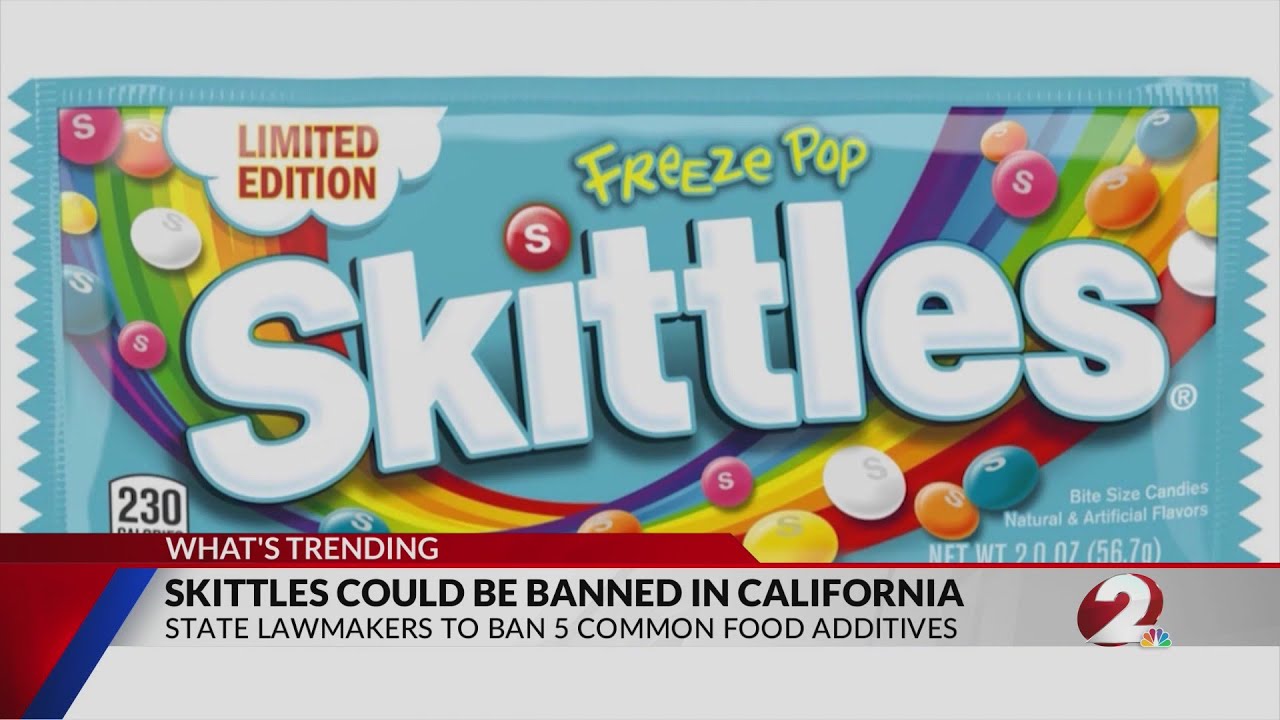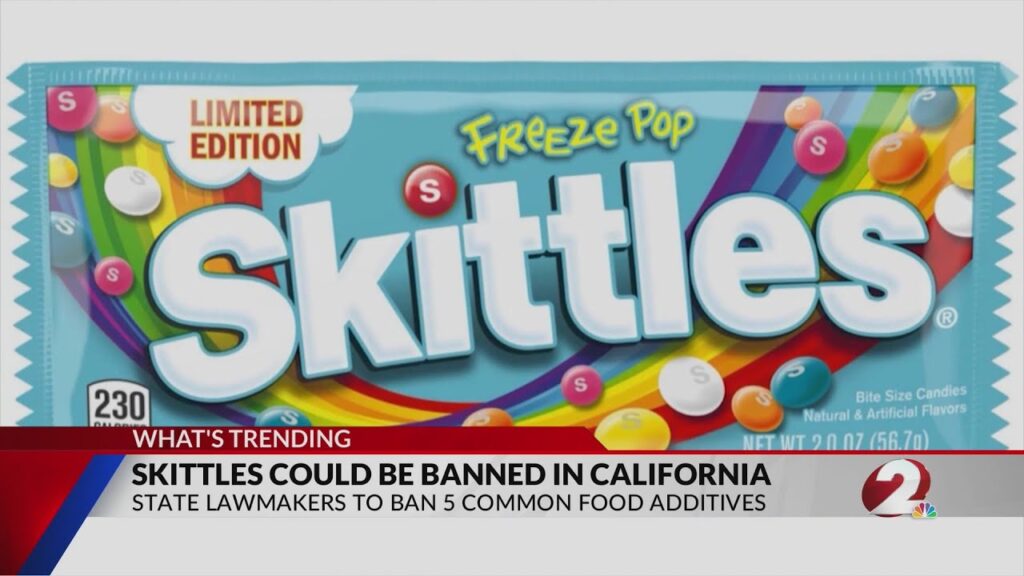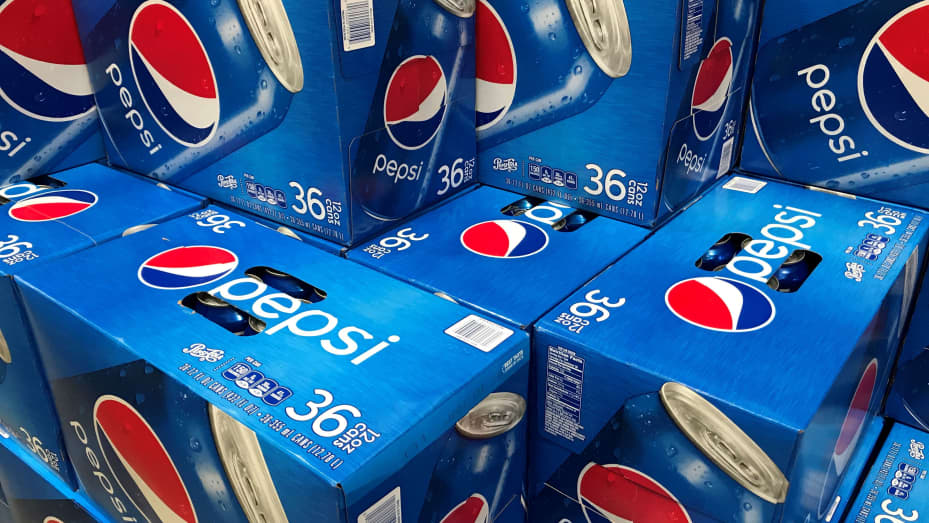The Sweet Controversy: California Skittles Banned – A Deeper Look

California Skittles Banned Skittles have earned a special place in the hearts of many, offering an explosion of fruity flavors in every bite. But recently, the Golden State, California, stirred up quite a controversy by implementing a ban on these iconic treats. In this article, we’ll delve into the reasons behind the California Skittles ban, its implications, and the wider discussion around food regulations and public health.
The California Skittles Ban: What’s the Fuss About?

The ban on Skittles in California raised eyebrows and sparked debates across the nation. At first glance, it seems unbelievable that such a beloved candy could face prohibition. However, the reasons behind the ban go beyond mere candy preferences.
- Health Concerns: The primary driving force behind the California Skittles ban is the growing concern over the health implications of consuming excessive sugar. Skittles, like many other candies, are high in sugar content, and overconsumption of sugar is linked to various health issues, including obesity, diabetes, and dental problems.
- Childhood Obesity Epidemic-California Skittles Banned: California, like many other states, is grappling with a childhood obesity epidemic. The ban on Skittles and similar high-sugar products is seen as a step towards curbing this alarming trend. With the ban, the state hopes to discourage children and their families from indulging in unhealthy snacks that contribute to obesity.
- Public Health Prioritization: Supporters of the ban argue that public health should take precedence over individual preferences, especially when it concerns products that are known to be harmful when consumed in excess. They believe that such measures are essential to protect the health and well-being of the population.
The Crypto Crash Reddit: Lessons and Insights from the Reddit Community
Skittles’ Side of the Story-California Skittles Banned
It’s important to note that Skittles, along with their parent company, Mars Wrigley, have responded to the California ban. They argue that the ban is an overreach of government authority into personal dietary choices and an infringement on personal freedom. They also highlight that they have made efforts to reduce the sugar content in their products and have introduced smaller portion sizes to address health concerns.
Implications of the California Skittles Ban-California Skittles Banned
- Precedent for Other States: The California Skittles ban could set a precedent for other states to follow suit, leading to a potential domino effect in the confectionery industry. Companies may have to reformulate their products to meet varying state regulations, which could increase costs and potentially affect product availability.
- Consumer Choice vs. Public Health: The ban sparks a broader debate about the balance between individual consumer choice and public health. On one hand, consumers have the right to make their own choices, but on the other, there’s a societal responsibility to prevent public health crises.
- Alternative Products: With Skittles off the market, consumers may turn to alternative candies or snacks with similar sugar content. This shift could render the ban less effective if it merely encourages a switch to equally unhealthy options.
- Economic Impact: The ban could have economic repercussions, affecting candy manufacturers, distributors, and retailers. Job losses in the candy industry and a potential loss of revenue for businesses could be significant.
- Long-term Health Benefits: Supporters of the ban argue that the potential long-term health benefits for the state’s population, particularly children, outweigh the short-term economic drawbacks.
Food Regulations in the United States-California Skittles Banned
To understand the California Skittles ban in a broader context, it’s essential to look at food regulations in the United States. The regulation of food and food-related products is primarily the responsibility of the Food and Drug Administration (FDA), which ensures the safety and labeling of food products. However, states have the authority to impose additional regulations to protect public health.
- Nutritional Labeling-California Skittles Banned: The FDA mandates that food products display nutritional information, including sugar content, on their labels. This information helps consumers make informed choices.
- Sugar Taxes-California Skittles Banned: Some states have implemented sugar taxes to deter the consumption of sugary beverages and snacks. These taxes are designed to reduce consumption while generating revenue for public health initiatives.
- Local Bans and Restrictions-California Skittles Banned: In addition to the FDA’s regulations, states and local governments can impose their own restrictions on food products, such as the California Skittles ban.
Public Health vs. Personal Freedom-California Skittles Banned
The California Skittles ban forces us to confront a fundamental question: Where should the line be drawn between public health concerns and personal freedom? While the ban is aimed at reducing childhood obesity and promoting healthier dietary choices, it also raises concerns about government overreach into individuals’ lives.
Proponents of personal freedom argue that individuals should have the autonomy to make their own choices, even if they are unhealthy, and that excessive government regulation infringes on this freedom. They emphasize the importance of education and personal responsibility as alternatives to outright bans.
On the other hand, advocates of public health argue that the government has a role in safeguarding the well-being of its citizens. They contend that the ban is a necessary step to protect vulnerable populations, especially children, from the adverse health effects of excessive sugar consumption. They believe that societal health should take precedence over personal preferences.
Love Travel
The Role of Education-California Skittles Banned
One potential middle ground in this debate is education. While the California Skittles ban aims to limit access to sugary products, it may not address the root issue of unhealthy dietary choices. Many believe that a more effective approach is to educate individuals, especially children and their parents, about nutrition and the consequences of excessive sugar consumption.
Comprehensive educational programs can empower people to make informed decisions about their diets and understand the long-term health consequences of their choices. By increasing nutritional literacy, individuals may voluntarily reduce their consumption of high-sugar products, leading to better health outcomes without the need for government bans.
Conclusion-California Skittles Banned
The California Skittles ban is just one example of a broader issue in the United States and around the world – the battle between public health concerns and personal freedom. While the ban has sparked controversy and debate, it also highlights the urgent need for proactive approaches to address the growing childhood obesity epidemic and the health risks associated with excessive sugar consumption.
The solution to this complex problem likely lies in a combination of measures, including government regulations, education, and personal responsibility. The ultimate goal should be to strike a balance that preserves individual freedoms while safeguarding the health and well-being of the population. Whether the California Skittles ban proves to be a pivotal moment in this ongoing debate or an isolated incident remains to be seen, but it undoubtedly calls attention to the critical choices society faces in shaping its future.




